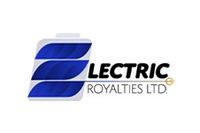The Washington Post called into question whether mining companies are capable of monitoring their supply chains for human rights abuses or child labor.
The Washington Post recently published an expose on cobalt mining, calling into question whether companies are capable of monitoring their supply chains for human rights abuses or child labor.
The article follows a cobalt pipeline first-hand, starting at a small Congolese mine to the finished product – cathodes in Lithium-ion batteries for consumer products such as iPhones.
Because cobalt is the most expensive raw material inside a lithium-ion battery, southern Africa has become the heart of the world’s scramble for cheap cobalt.
According to the article:
Congo’s cobalt trade has been the target of criticism for nearly a decade, mostly from advocacy groups. Even U.S. trade groups have acknowledged the problem. The Electronic Industry Citizenship Coalition — whose members include companies such as Apple — raised concerns in 2010 about the potential for human rights abuses in the mining of minerals, including cobalt, and the difficulty in tracking supply chains. The U.S. Labor Department lists Congolese cobalt as a product it has reason to think is produced by child labor.
Mining
Miners face major dangers when mining cobalt, and pay is based solely on what they find – hence, most miners have to choose between their lives and their livelihood.
The smallest storm can fill a mine with water, and there are frequent dangers of cave-ins that have killed miners. Barefoot and equipped with small plastic headlamps, “artisanal” miners mine without pneumatic drills, maps or diesel draglines. Approximately 100,000 miners dig by hand, usually earning about $2 to $3 on a productive day.
The Washington Post captured video footage of miners crawling down shafts that are barely bigger than them without safety equipment. Other footage showed miners washing the metals in a river that supplies drinking water, which has raised concerns about the connection between cobalt mining and birth defects or illnesses.
Selling
After extraction, miners carry the metal in bags to one of the 70 shops in the Musompo, a mineral market outside Kolwezi, to sell. Kolwezi is a remote city steeped in cobalt and copper, which are often found together.
Each load is tested by a radar-gun-like device called a Meterox, which detects mineral content, and then the miners are paid based on quality and quantity of their find. The cobalt is then sold to one Chinese company, Congo DongFang Mining, for processing in China.
Processing
Processors such as CDM and Huayou Cobalt then refine the metal and make it into cathodes (a positive electrode essential for conducting electricity in Lithium-ion batteries) and sold to battery manufacturers such as ATL, Samsung SDI, and LG Chem. From that point, it is sold to consumer product makers (e.g. Amazon, Apple, Samsung, LG) who use the batteries in cellphones, laptops, tablets and electric vehicles.
Revamping policies could be “devastating”
According to the article, any crimp in the cobalt supply chain would devastate companies. Huayou Cobalt has said that it would also aggravate poverty conditions for cobalt miners if companies boycotted the country – but companies such as Apple have stated to the Post that they will be conducting an audit of its supply chain in order to improve conditions for miners:
Paula Pyers, a senior director at Apple in charge of supply-chain social responsibility, said the company plans to increase scrutiny of how all its cobalt is obtained. Pyers also said Apple is committed to working with Huayou Cobalt to clean up the supply chain and to addressing the underlying issues, such as extreme poverty, that result in harsh work conditions and child labor.
Starting in 2017, Apple will internally treat cobalt as a conflict mineral, requiring all cobalt refiners to agree to outside supply-chain audits and conduct risk assessments.
Don’t forget to follow us @INN_Resource for real-time news updates!
Securities Disclosure: I, Sarah Jamieson, hold no direct investment interest in any company mentioned in this article.

